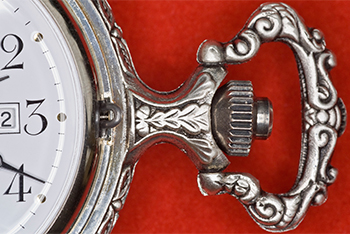 Believe it or not, a will is more likely than any other legal document to be the subject of litigation.1 Despite a testator’s best intentions to communicate his or her dispositive wishes, estate planning documents are rife for disputes among family members apt to contest their inheritances. As a result of ambiguity in the documents, family dynamics, or feelings of unfairness among beneficiaries and family members, wills are contested with stunning frequency.
Believe it or not, a will is more likely than any other legal document to be the subject of litigation.1 Despite a testator’s best intentions to communicate his or her dispositive wishes, estate planning documents are rife for disputes among family members apt to contest their inheritances. As a result of ambiguity in the documents, family dynamics, or feelings of unfairness among beneficiaries and family members, wills are contested with stunning frequency.
Mediation, probably better known in the family law context, is especially well suited to handle and dispose of such probate and estate disputes. Its use in probate, trust, and estate contests is growing exponentially and this trend, which developed on the east and west coasts, has now taken root in the Midwest. Mediation’s success in this context rests on both the inherent nature of the probate process and on outside forces that have led to an increase in probate, trust, and estate disputes. In fact, many state courts now integrate mediation, either voluntarily or court mandated, into their probate proceedings.2
What is Mediation?
Mediation is an informal, alternative-dispute-resolution process that uses a trained third party to facilitate a settlement between parties.3 The mediator’s main role is to assist the parties, through communication and negotiation, in reaching a voluntary agreement regarding their disagreement.4 With the help of a mediator, disputing parties voice their concerns, address their issues, and work together toward an amicable solution. Mediation should not be confused with arbitration, which generally seeks to pick winners and losers.
Need for Probate Mediation
Probate Process. Probate administrations, by their nature, invite bickering among families, and therefore, lead to more contested proceedings. In Wisconsin, for example, interested parties, including beneficiaries as well as heirs, are required to receive a copy of the will (including codicils), further increasing the likelihood of a dispute due to varying notions of fairness. Although most states have a forced-share provision for disinherited spouses, children and other potential heirs do not benefit from such a provision,5 increasing the chances of a will contest if someone is disinherited.6
As a result of efficiency and the fact that costs are divided among all involved parties, mediation is often significantly less expensive than litigation.
The contesting beneficiary’s incentive to fight is further increased by the fact that jury trials are available for probate disputes and by the lack of a “loser pays” provision. These mechanisms, common in the civil context, are meant to significantly increase the cost of waging a losing battle.7 However, the lack of these features, which would provide a disincentive to potential claimants, encourages probate contests. Even claimants who have a very low probability of winning might choose to pursue a contest with the hope of simply getting a settlement in return for dropping their fight.
Demographics. The United States is undergoing a historic population shift as baby boomers move into their final stages of life. Boomers, currently consisting of approximately 79 million people,8 are retiring at a rate of 10,000 per day.9 At the same time, their life expectancy is increasing. In fact, this generation has the longest life expectancy, 79 years, in history.10 Individuals age 85 or older are the fastest growing demographic in the country.11
The boomer generation is also poised to make the largest intergenerational transfer of wealth ever seen in the United States. In the next 10 years, families will pass on more wealth than ever previously documented. By 2052, it is estimated the total transfer amount will reach approximately $41 trillion.12
The sheer number of people who make up the boomer generation, combined with their increased life expectancy and wealth, create an environment ripe for inheritance disputes. Research suggests that many members of this age group, perhaps more than half, do not have any estate planning documents.13 Without proper planning, heirs will inevitably fight over estate assets, particularly given the size of the wealth expected to be transferred and the fact that heirs are now being forced to wait longer before receiving inheritances.
 Eido Walny, Boston Univ. 2001, is the owner of Walny Legal Group LLC, a boutique estate planning law firm based in Milwaukee and with a national clientele. He has helped resolve countless family disputes in both formal and informal settings.
Eido Walny, Boston Univ. 2001, is the owner of Walny Legal Group LLC, a boutique estate planning law firm based in Milwaukee and with a national clientele. He has helped resolve countless family disputes in both formal and informal settings.
 Kelly Dancy, Marquette 2009, is an attorney with Walny Legal Group and focuses her practice on estate planning as well as probate and trust administration. She has experience in negotiating and resolving probate, trust, and fiduciary litigation cases.
Kelly Dancy, Marquette 2009, is an attorney with Walny Legal Group and focuses her practice on estate planning as well as probate and trust administration. She has experience in negotiating and resolving probate, trust, and fiduciary litigation cases.
Technology. The potential for estate disputes is further exacerbated by the rise of “do-it-yourself” law websites, such as LegalZoom and RocketLawyer, that thrive on providing low-cost, self-help legal services. While such sites may be economical and fast, problems arise because their successful use relies on their clients both understanding and then responding appropriately to prompted legal questions. However, many clients do not comprehend the practical consequences of their answers, thus leading to poor responses and, in turn, bad documents. By far the biggest problem, however, is that, the client is often not in a position to evaluate the quality of the documents produced beyond simply considering whether the document reads well and sounds “legal.”
This information gap creates countless situations in which a client’s documents do not match his or her intentions for the distribution of the estate assets. Such a discrepancy may lead to a will contest, particularly when the family was aware of the decedent’s original or stated wishes. Moreover, depending on how the client answered the various questions, the potential for ambiguity in the document is high. This fact, combined with each state’s differing probate, trust, and estate laws, means the quality of the documents will suffer, inviting litigation to resolve these issues.
Benefits of Mediation
Efficient and Cost Effective. The most cited benefit of mediation is the efficiency it introduces into the adversarial and often inefficient litigation arena.14 Litigation can be a long and drawn-out process, lasting for years or even decades. The parties have an incentive to dig in their heels and delay the final judgment by filing repeated motions and appeals. This inefficiency causes increased court costs, crowded dockets, overworked judges, and delayed justice. In the meantime, estate beneficiaries continue to age and sometimes die themselves, intrafamily strife lingers, and estate assets dwindle.
The informality of the mediation process lends itself to efficiency.15 It allows for greater flexibility in scheduling, resulting in meetings being held more quickly and in turn, issues being resolved sooner. Mediators and their clients are not subject to the delays that result from a formal probate process or busy court calendar. As a result of this efficiency and the fact that costs are divided among all involved parties, mediation is often significantly less expensive than litigation.16 Mediation clients enjoy lower fees by escaping court costs and significantly minimizing attorney fees.
Who are Good Candidates for Mediation?
Not all families with trust and estate disputes will be good candidates for mediation. When evaluating whether mediation may be a good option for clients, one should evaluate if the following conditions are present or can be met:
Are all family members engaged in the process?
Is there willingness among the family members, however tenuous, to compromise?
Do the parties appreciate and respect the confidentiality of the proceedings?
Are there unique assets or family dynamics that necessitate a unique solution?
The parties are ultimately responsible for crafting a final solution that is agreeable to everyone. If they are not engaged in the process, the settlement will not meet expectations and it is unlikely the parties will abide by it. The parties need to feel invested in the final agreement to create a resolution that will last.
Trust and Estate Mediation Tips
Make sure participants understand your role as a neutral, third-party mediator who will help them arrive at a resolution, rather than deciding the case or advocating for any particular party.
Establish ground rules for discussions.
Have an agenda of key issues to discuss during the mediation.
Let each party tell his or her “side” of the story.
Ask questions to clarify issues and feelings.
Speak to each party individually in a private caucus if you need to test a party’s position or give a party a reality check to break through an impasse.
Try to keep the discussion focused on the future and how concerns can be addressed in the future, rather than focusing on what happened in the past.
Brainstorm solutions and discuss options for settlement.
What Is a Good Result
It is important to understand that mediation is not about picking winners and losers, but finding solutions to problems that the parties can live with. It is possible, and even probable, that a good solution will not leave everyone happy. That’s okay so long as the parties have worked through their issues, made compromises where compromises were appropriate, and can be respectful of the ultimate solution obtained.
This cost benefit is even more significant for smaller estates. While the cost of litigation is generally prohibitive for small estates compared to the amount at issue, mediation provides a forum for even those small, but no less important, disputes.17 The lower cost of mediation can make such disputes worth pursuing, and individuals who might have accepted an undesirable outcome to avoid the cost of litigation can instead protect their interests through mediation.18
Flexible Settlement Options. The court system is very limited in the relief it can provide for disputants, particularly when it comes to contesting the validity of a testator’s dispositive documents. Often, the only path to relief is to find the testator lacked the capacity to execute those documents or was the victim of undue influence. Both outcomes are subject to a high burden of proof and thus are difficult to reach. Should the court find such a situation occurred, the result is often one family member being “disinherited” to the benefit of another or the court’s nullification of the will.
Mediation is not constrained by such limitations and provides greater flexibility for the parties and the mediator to find a solution to the dispute that is agreeable to both sides.19 The mediator has significant latitude to craft a satisfying arrangement and is able to consider both the monetary and the sentimental value of the estate or trust assets.20 In such disputes, the sentimental value is often more important to the family members. The mediation process allows parties to account for such situations. Mediators can create incentives to settle by modifying the distribution of the decedent’s assets.
Emphasis on Maintaining Relationships. Disputes within families can become very emotional, particularly when the health of a family member or the fate of an inheritance is at stake. Add the adversarial litigation process to this already heightened atmosphere, and family relationships become strained, if not destroyed altogether. Sometimes disputes have their roots in problems between siblings dating back to their youth: now with no parent to referee, long-standing issues boil over into disputes and, thus, litigation. The mediation process can provide a forum for communication and become a mechanism to repair, maintain, or improve relationships.21
Mediation seeks to preserve family relationships by avoiding the emotional damage that can result from litigation.22 Litigation encourages parties to take a position and then become entrenched in that position as the case winds through the court system. The litigation process inherently produces a winner and a loser and inhibits any communication between the disputing parties. Such a system is not conducive to maintaining, let alone repairing, family relationships.
Mediation requires disputing parties to work together to reach a favorable outcome and this cooperation allows families to increase communication. 23 An individual might, for the first time, actually hear what the other party is saying.24 Awareness of the actual issues to the dispute, as opposed to those perceived, may allow the parties to move toward a real solution and lay the foundation for repairing strained relationships. Understanding each party’s position may lead to less fighting in the future, as the parties are apt to problem solve together should another dispute arise.25
Privacy and Confidentiality.The issues that arise in probate, trust, or estate contests often involve sensitive topics that are deeply personal to the testator and the family. Such topics can include the competency or mental health of the testator as well as private family issues and “secrets.” They also can include an examination of the motives and actions of family members and accusations that could be quite damaging or embarrassing if made public.26 But public disclosure is the unintended consequence for heirs pursuing actions in the American court system. All court proceedings, including probates, are generally open to the public.
However, mediation allows the family members to address their grievances in a private setting, thereby avoiding airing the family’s dirty laundry.27 Any internal disputes are kept outside the public forum. An additional benefit of such privacy is the inclination of the disputants to speak freely regarding the issue at hand.28 Such forthrightness can increase the chances of a settlement because it allows the parties to actively deal with their legal and personal issues.
Mutual Party Satisfaction. If both parties actively participate in the mediation and agree to the settlement terms, there is a much higher likelihood that the terms will hold. In fact, it is rare for a breach to occur under such favorable circumstances, in part because parties to mediation report feeling that they have more control and are more empowered compared to individuals using litigation.29 These feelings generally lead to a good result for both parties, from both a personal and professional perspective. Litigation does not produce the same result.
Conclusion
Probate, trust, and estate disputes are ideal candidates for mediation. Disputes are increasing in frequency, due to the inherent nature of the probate process and a combination of outside forces, including shifting population dynamics, projected wealth transfers, and advances in technology.
Mediation is particularly appropriate for probate, trust, and estate disputes because of its emphasis on maintaining and preserving family relationships, which are often at the heart of such disputes. This aspect of probate, trust, and estate disputes, along with mediation’s benefits of efficiency, flexibility, confidentiality, and party satisfaction, suggest that mediation is a worthwhile and perhaps superior dispute-resolution mechanism compared to litigation, and it should be considered before any formal court contest is commenced.
Endnotes
1 Andrew Stimmel, Mediating Will Disputes: A Proposal to Add a Discretionary Mediation Clause to the Uniform Probate Code, 18 Ohio St. J. on Disp. Resol. 197, 203 (2002).
2 Ray D. Madoff, Mediating Probate Disputes: A Study of Court Sponsored Programs, Boston College Law School, Public Law and Legal Theory Research Paper Series, Research Paper No. 32 (Feb. 26, 2004).
3 Victoria J. Haneman, The Inappropriate Imposition of Court-Ordered Mediation in Will Contests, 59 J. Cleve. St. L. Rev. 513, 516 (2011).
4 Id.
5 Stimmel, supra note 1, at 203.
6 Id.
7 Id.
8 John J. Scroggin, Where is Estate Planning Going?, 5, Lemberg Information Services Estate Planning Newsletter #2081 (March 25, 2013); republished on the Society of Financial Service Professionals website.
9 Id. at 3.
10 Id. at 6.
11 Id. at 7.
12 Id. at 10-11.
13 Ashlea Ebeling, Americans Lack Basic Estate Plans, Forbes (March 1, 2010).
14 Stimmel, supra note 1, at 210.
15 Id.
16 Id. at 211.
17 Id.
18 Id.
19 Id. at 210.
20 Susan N. Gary, Mediation and the Elderly: Using Mediation to Resolve Probate Disputes over Guardianship and Inheritance, 32 Wake Forest L. Rev. 397, 428-29 (1997).
21 Id. at 428
22 Id.
23 Id.
24 Id.
25 Stimmel, supra note 1, at 210.
26 Haneman, supra note 3, at 424.
27 Id.
28 Id.
29 Stimmel, supra note 1, at 209.
